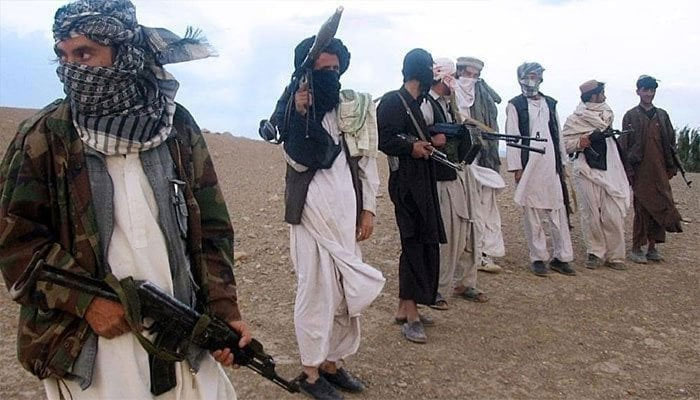Terror challenges
According to Pakistan Institute for Conflict and Security Studies (PICSS), 79 terrorist attacks were recorded in February alone
The Global Terrorism Index (GTI) 2025, published by the Institute for Economics and Peace (IEP), ranks Pakistan as the second most terrorism-affected country in the world. This two-place jump on the GTI highlights the growing terror threat Pakistan is facing. Hardly a day passes without reports of terrorism-related incidents across the country.
According to the Pakistan Institute for Conflict and Security Studies (PICSS), 79 terrorist attacks were recorded in February alone. One of the most shocking was the Jamia Haqqania attack on February 28, in which JUI-S leader Hamid ul Haq was among those killed. So far, no militant group has claimed responsibility for the attack. However, based on the attack pattern and historical context, suspicion falls on Islamic State Khorasan Province (ISKP).
Another devastating incident followed shortly in Bannu, where more than a dozen people—including women and five children—lost their lives. The attack was swiftly claimed by Jaish al-Fursan Muhammad (JFM), a highly trained faction of the proscribed Hafiz Gul Bahadur group. JFM, infamous for suicide bombings, is steadily gaining momentum in southern Khyber Pakhtunkhwa.
Even before the bloodshed in Bannu had settled, another horrific attack made headlines — this time in Balochistan. On March 11, the Jaffar Express, travelling from Quetta to Peshawar, came under attack in the Bolan region. The proscribed Baloch Liberation Army (BLA), which claimed responsibility, killed several passengers and took hundreds hostage.
Simply put, the militant landscape in Pakistan is now more complex than ever. New alliances are being formed to present a united front against the state, while growing rifts between militant factions, such as the TTP and Jamaat-ul-Ahrar (JuA), add another layer of unpredictability. While some view these internal divisions as a positive development, history suggests otherwise — such schisms often escalate violence, as rival factions attempt to outdo one another. If this trend continues, Pakistan is likely to face even more violent attacks in the coming weeks and months.
The frequency and intensity of recent terrorist attacks indicate an alarming situation ahead. Notably, violent attacks have surged since the TTP launched its spring offensive, codenamed ‘Al-Khandaq Operation’. If the current trajectory persists, Pakistan could find itself at the top of the GTI next year — a scenario with severe domestic and global repercussions.
The challenge is immense, but overcoming it is not impossible. At the domestic level, it is crucial to recognise that a purely kinetic approach cannot be a catch-all solution to violence. A single strategy cannot effectively address diverse root causes, local dynamics and cultural differences. Countering extremism before it leads to terrorism must be prioritised, and a whole-of-society approach is needed. This means addressing local grievances, which are often exploited by militant groups.
Counterterrorism laws should be exclusively used to combat terrorism; their political misuse undermines their effectiveness. Strengthening law enforcement agencies (LEAs) is also critical. Poorly equipped security forces cannot effectively combat well-armed militants, many of whom have gained access to US-abandoned modern weaponry in Afghanistan.
Above all, political will is the need of the hour. At the regional level, counterterrorism cooperation must be strengthened.
The Shanghai Cooperation Organization (SCO) could serve as a platform for Pakistan to seek support from Russia and China, applying pressure on the Afghan Taliban to withdraw their backing for militant groups.
Can Pakistan afford to replace Burkina Faso as the world's most terrorism-affected country? The answer is clear: absolutely not.
The writer is a police officer with an interest in international affairs and social issues. He tweets/posts @Numanbacha20
-
 ChatGPT Caricature Prompts Are Going Viral. Here’s List You Must Try
ChatGPT Caricature Prompts Are Going Viral. Here’s List You Must Try -
 James Pearce Jr. Arrested In Florida After Alleged Domestic Dispute, Falcons Respond
James Pearce Jr. Arrested In Florida After Alleged Domestic Dispute, Falcons Respond -
 Cavaliers Vs Kings: James Harden Shines Late In Cleveland Debut Win
Cavaliers Vs Kings: James Harden Shines Late In Cleveland Debut Win -
 2026 Winter Olympics Snowboarding: Su Yiming Wins Bronze And Completes Medal Set
2026 Winter Olympics Snowboarding: Su Yiming Wins Bronze And Completes Medal Set -
 Trump Hosts Honduran President Nasry Asfura At Mar-a-Lago To Discuss Trade, Security
Trump Hosts Honduran President Nasry Asfura At Mar-a-Lago To Discuss Trade, Security -
 Cuba-Canada Travel Advisory Raises Concerns As Visitor Numbers Decline
Cuba-Canada Travel Advisory Raises Concerns As Visitor Numbers Decline -
 Anthropic Buys 'Super Bowl' Ads To Slam OpenAI’s ChatGPT Ad Strategy
Anthropic Buys 'Super Bowl' Ads To Slam OpenAI’s ChatGPT Ad Strategy -
 Prevent Cancer With These Simple Lifestyle Changes
Prevent Cancer With These Simple Lifestyle Changes -
 Air Canada Flight Diverted St John's With 368 Passengers After Onboard Incident
Air Canada Flight Diverted St John's With 368 Passengers After Onboard Incident -
 Experts Reveal Keto Diet As Key To Treating Depression
Experts Reveal Keto Diet As Key To Treating Depression -
 Inter Miami Vs Barcelona SC Recap As Messi Shines With Goal And Assist
Inter Miami Vs Barcelona SC Recap As Messi Shines With Goal And Assist -
 David Beckham Pays Tribute To Estranged Son Brooklyn Amid Ongoing Family Rift
David Beckham Pays Tribute To Estranged Son Brooklyn Amid Ongoing Family Rift -
 Jailton Almeida Speaks Out After UFC Controversy And Short Notice Fight Booking
Jailton Almeida Speaks Out After UFC Controversy And Short Notice Fight Booking -
 Extreme Cold Warning Issued As Blizzard Hits Southern Ontario Including Toronto
Extreme Cold Warning Issued As Blizzard Hits Southern Ontario Including Toronto -
 Lana Del Rey Announces New Single Co-written With Husband Jeremy Dufrene
Lana Del Rey Announces New Single Co-written With Husband Jeremy Dufrene -
 Ukraine-Russia Talks Heat Up As Zelenskyy Warns Of US Pressure Before Elections
Ukraine-Russia Talks Heat Up As Zelenskyy Warns Of US Pressure Before Elections




